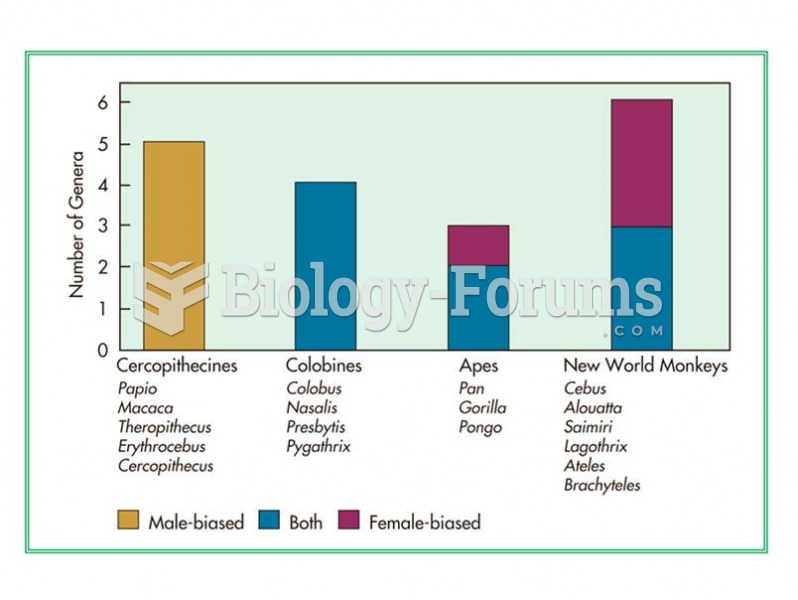Answer to Question 1
1
Rationale 1: Older female patients on Haldol have a higher incidence of tardive dyskinesia (an adverse effect). Tardive dyskinesia is characterized by wormlike movements of the tongue.
Rationale 2: This reaction is common but will not go away in a week or two.
Rationale 3: While this effect does indicate the patient is taking the medication, it is not desirable.
Rationale 4: This is not an effect of the underlying disease.
Global Rationale: Older female patients on Haldol have a higher incidence of tardive dyskinesia (an adverse effect). Tardive dyskinesia is characterized by wormlike movements of the tongue. This reaction is common but will not go away in a week or two. While this effect does indicate the patient is taking the medication, it is not desirable. This is not an effect of the underlying disease.
Answer to Question 2
1
Rationale 1: Most antidysrhythmic drugs act by interfering with myocardial action potentials, blocking the action of sodium, potassium, and calcium channels and causing some irregular beats.
Rationale 2: Although it is best to discuss medications with a professional, this response does not answer the patient's question.
Rationale 3: Anticoagulant medication is sometimes indicated, but it does not require taking two doses of baby aspirin.
Rationale 4: Mixing the medication with over-the-counter (OTC) medications might result in irregular beats, but this is not the best answer.
Global Rationale: Most antidysrhythmic drugs act by interfering with myocardial action potentials, blocking the action of sodium, potassium, and calcium channels and causing some irregular beats. Mixing the medication with over-the-counter (OTC) medications might result in irregular beats, but this is not the best answer. Anticoagulant medication is sometimes indicated, but it does not require taking two doses of baby aspirin. Although it is best to discuss medications with a professional, this response does not answer the patient's question.







